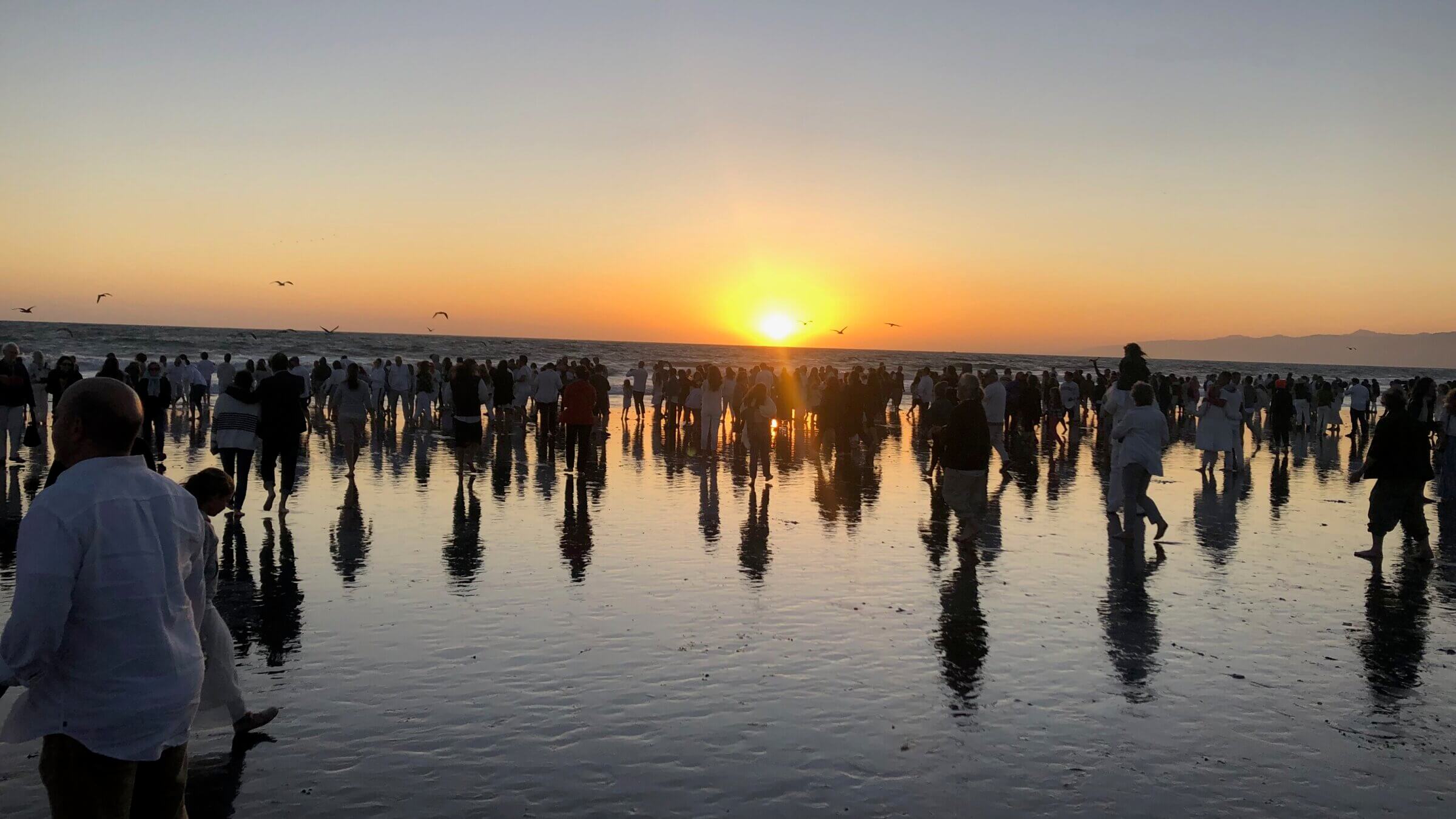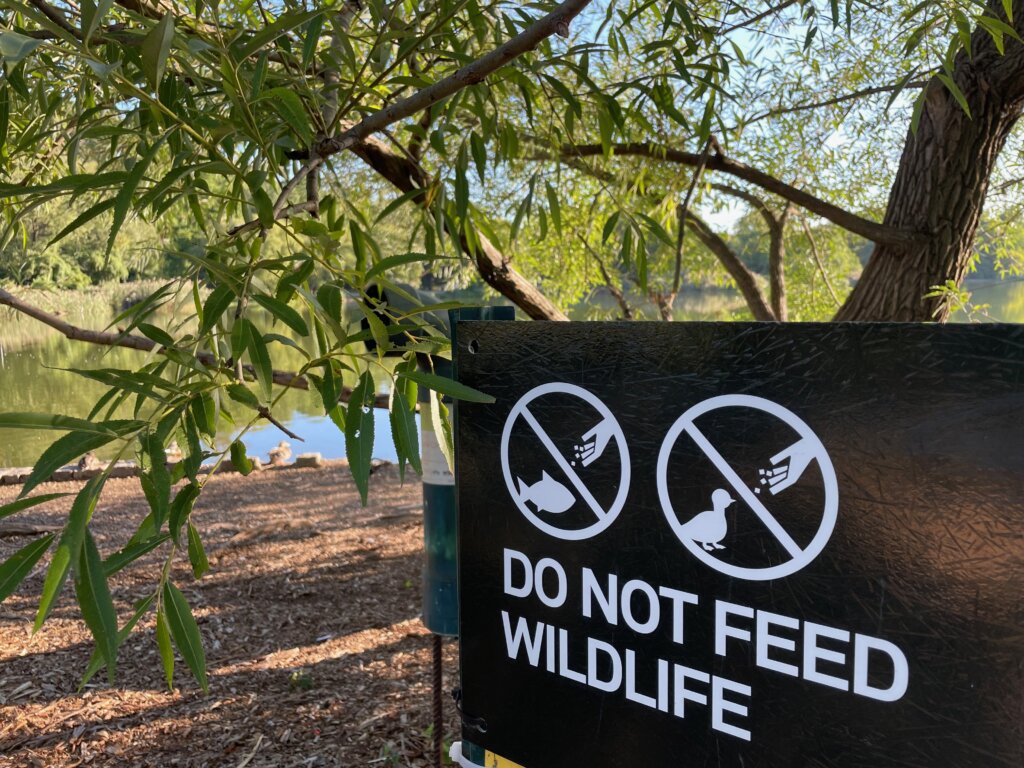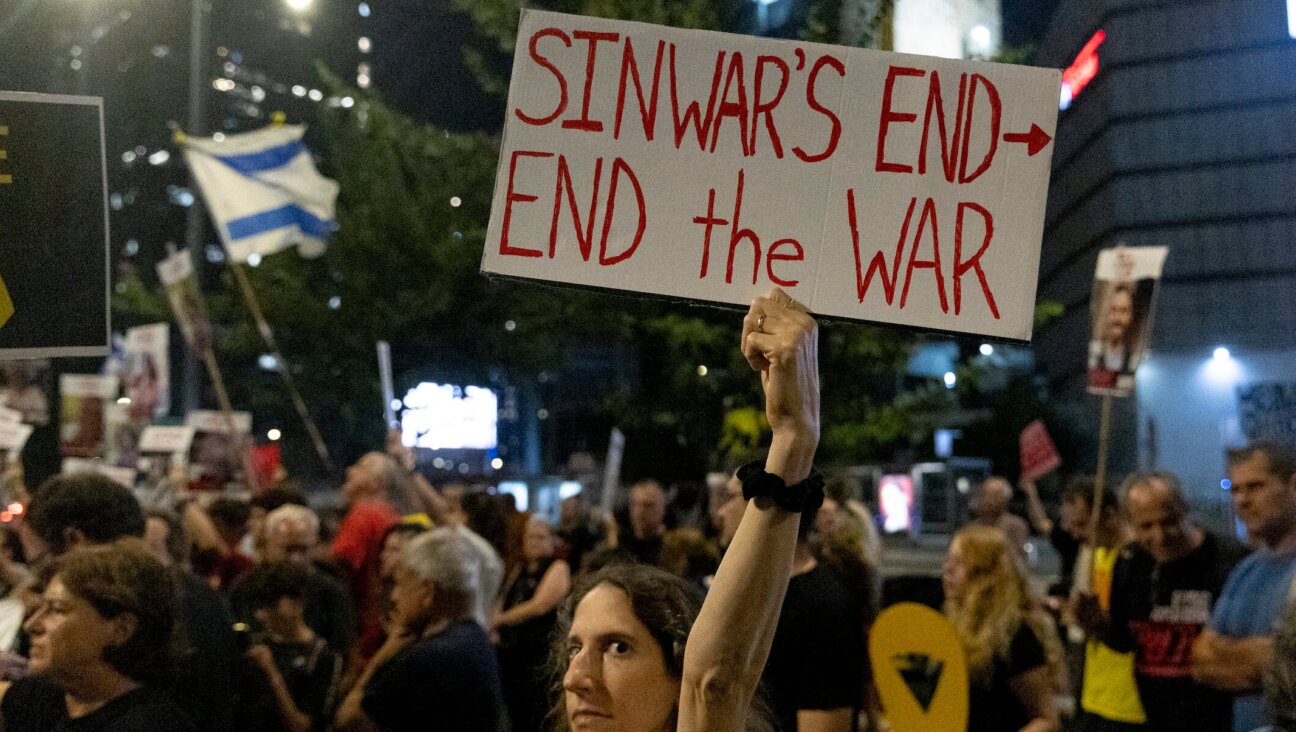Just in time for Rosh Hashanah, a new reason to feel guilty
If throwing bread for tashlich is wrong, do I want to be right?

Congregants of Nashuva cast bread into the waters of Santa Monica Bay during the Rosh Hashanah tashlich ritual in 2021. Photo by Rob Eshman
My favorite Jewish food is borscht, my favorite Jewish holiday is Sukkot, and my favorite Jewish ritual is tashlich.
Maybe I need to rethink that last one.
Tashlich, which in Hebrew means “cast off,” is a New Year’s ritual during which Jews symbolically throw away their sins. Many communities, including mine, typically do so by tossing bread into a stream, river, ocean or pond — any body of flowing water.
But now, citing concerns over animal welfare and food waste, more and more people are calling for a change. Some congregations are replacing the bread with pebbles, wood chips or, following an Israeli custom, simply standing at the water and turning their pockets inside out.
Really? Et tu, tashlich?
I am not deaf to calls for environmentalism. I am prone to ranting that Jewish ethics demand we eat sustainable lox, take real steps to fend off climate change, ban the ritual of swinging chickens on Yom Kippur, and embrace the concept of a sabbatical for the earth.
But even I have a hard time giving up bread on tashlich. I find joy and meaning in the ritual, just the way it is.
For 18 years now, Nashuva — the congregation my wife, Rabbi Naomi Levy, created — has held a tashlich ceremony at Venice Beach. After a massive, ecstatic drum circle on the beach and the blast of multiple shofars, about 1,000 of us, mostly dressed in white, recite the words of the prophet Micah on which the 13th century ritual is based: “You will take us back in love; You will cover up our iniquities. You will cast all their sins into the depths of the sea.”
Then we walk en masse to the water’s edge, throwing pieces of stale bagels, crumbled challah and hardened pita toward the setting sun.
Most of the bread drifts out to sea or disappears under the breakers. The seagulls swoop in to grab what crumbs they can in midair, or hop along the shore to where the waves return soggy chunks. Our sins are their supper.
I love throwing bread on tashlich for the same reason that many rabbinic authorities have, over the centuries, opposed it: It feels like a quick cleanse, a simple expiation. Before religions fettered themselves in liturgy, people offered grains to hungry gods. Instead of beating your breast, you can just toss some bread.
I like seeing the seagulls swoop in, too, even though Orthodox rabbis have said that feeding fish and birds on a holiday is problematic: it counts as work.
On the other hand, the environmental anti-bread arguments aren’t easy to dismiss. Many congregations, at the urging of local environmental authorities, have stopped with the bread throwing. It interferes with avian nutrition and can even lead, according to the Audubon Society, to a condition called “angel wing,” which prevents waterfowl from flying. No other time of year would I even think of feeding human food to wild animals.
And I understand that where many people descend on one sensitive environment, like Brooklyn’s Prospect Park, the impact can be amplified. Signs posted along the ponds there shout, “Do Not Feed the Wildlife.”

But I’ve suppressed whatever misgivings I’ve had, swept up in the beauty of the ritual. It’s just once a year, I tell myself. It’s a tradition. If everyone did it, that would be terrible, but how many Jews are there in the world?
Each year, 14 million tons of plastic end up in the ocean. Do our literal crumbs really count?
This litany of rationalizations is, I realize, exactly how I wrestle with my own personal flaws in these days of reflection and atonement. Faced with the need to change, I find excuses, I rationalize, I resist. Psychologists have identified five stages of grief but six stages of behavior change, which I think means it’s easier to deal with death than to actually change.
The High Holidays come to remind us that we can’t avert death, but we can take charge of our lives.
First things first, we have to admit wrongdoing. When it comes to personal faults, that shouldn’t be difficult, unless you’re a sociopath. We know, alone before our Creator, when we’ve lied, cheated, gossiped or harmed people.
But it’s trickier to know when to atone for doing harmful things to the world. In the triage of transgressions, just how high up is casting some bread upon the waters?
In my pre-tashlich confusion, I reached out to Heal the Bay, the non-profit that spearheaded the cleanup of the once befouled Santa Monica Bay.
“Heal the Bay takes no issue whatsoever in this practice and would not intervene or prevent this ceremony,” wrote Emily Parker, the organization’s marine scientist, adding it would take “massive amounts” of bread to have a negative impact. “The importance and cultural significance of the act outweighs any environmental impact concerns.”
I have to admit I felt relief. As I walk to the shore this Rosh Hashanah and confront my own flaws, I will continue to wrestle with questions about how I personally can lessen the harm we humans cause the planet — I hope we all will. But I will also give myself — and us all — some grace.
Last year, standing by the water, a friend of mine said he’s certain that the seagulls know when it’s tashlich and return to the breakwater each year like the swallows to San Juan Capistrano to scarf down old, wet challah.
“It can’t be good for them,” I said.
“Rob,” he said, “they eat garbage.”
A message from our Publisher & CEO Rachel Fishman Feddersen

I hope you appreciated this article. Before you go, I’d like to ask you to please support the Forward’s award-winning, nonprofit journalism during this critical time.
We’ve set a goal to raise $260,000 by December 31. That’s an ambitious goal, but one that will give us the resources we need to invest in the high quality news, opinion, analysis and cultural coverage that isn’t available anywhere else.
If you feel inspired to make an impact, now is the time to give something back. Join us as a member at your most generous level.
— Rachel Fishman Feddersen, Publisher and CEO























